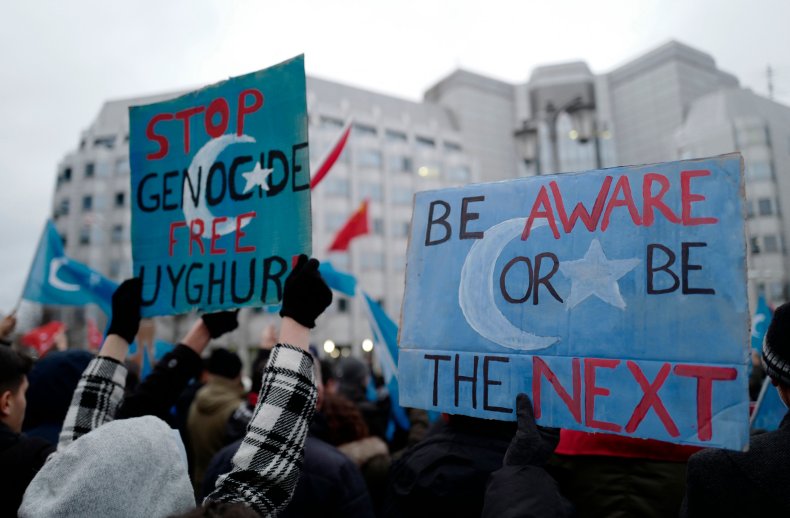[ad_1]
Over half a million Uighur laborers in the Northwestern region of Xinjiang, China, have been forced into hand picking cotton through a government run work scheme, according to new report.
The Center for Global Policy (CGP), a Washington-based think tank, published a report on Monday stating that 570,000 people from Uighur regions in 2018 were forcibly sent to pick cotton under a labor program meant to target minority groups.
“New evidence from Chinese government documents and media reports shows that hundreds of thousands of ethnic minority laborers in Xinjiang are being forced to pick cotton by hand through a coercive state-mandated labor transfer and ‘poverty alleviation’ scheme, with potentially drastic consequences for global supply chains,” the report states.
Xinjiang is home to roughly 11 million Uighors, a predominantly Muslim-Turkic ethnic minority, and produces 85 percent of China’s cotton and 20 percent of the global supply.
According to the CGP findings, the total number of forced laborers picking cotton throughout the region exceeds the reported number “by several hundred thousand.”
The report detailed “grueling” work conditions, and said that workers are heavily surveilled by government officials and police with “military-style management” and political indoctrination.
Adrian Zenz, the author of the research, said it was clear that the work program, which the government initiated to “boost rural incomes,” involved “a very high risk of forced labor.”
“Some minorities may exhibit a degree of consent in relation to this process, and they may benefit financially. However, in a system where the transition between securitization and poverty alleviation is seamless, and where the threat of extralegal internment looms large, it is impossible to define where coercion ends and where local consent may begin,” he wrote.

JOHN MACDOUGALL/Getty
The report follows a long-standing international and human rights concern alleging that China has placed over 1 million Uighors and other Muslim minorities into detainment camps, and forces people to work against their will.
In 2018, the United Nations said they had credible evidence to suggest China had transformed Uigur regions into “something that resembles a massive internment camp that is shrouded in secrecy, a sort of ‘no rights zone.'”
In October of this year, the U.S. Department of Labor said that Uighur laborers are forced to “endure dreadful conditions” and “receive little pay, are not allowed to leave, and have limited or no communication with family members. If family communication and visits are allowed, they are heavily monitored or cut short.”
But the Chinese government has pushed back against these claims, stating that the camps are vocational training centers meant to fight extremism, and denied all allegations of forced labor.
During a news conference in Beijing on Tuesday, foreign ministry spokesman Wang Wenbin said that there is no “forced labour alleged by certain people with ulterior motives.”
“Helping people of all ethnic groups achieve stable employment is completely different from forced labour,” he added.
Wang said that workers of all ethnic groups in Xinjiang are not discriminated against based on ethnicity, gender or religious beliefs.
But the U.S. government has pushed back against the Xinjiang region for allegations of forced labor.
Earlier this month, the U.S. banned cotton imports from the Xinjiang Production and Construction Corps, a powerful cotton company that manages nearly one-third of the cotton sourced in the region.
An additional bill proposing to ban all imports from Xinjiang has yet to pass the U.S. Senate.
Major international clothing brands, including Adidas, Gap and Nike, were accused of using Uighur forced labour in their textile supply chains earlier this year, according to a report by the Australian Strategic Policy Institute.
Newsweek reached out the Center for Global Policy for an additional comment, but did not receive a response in time for publication.
[ad_2]
Source link